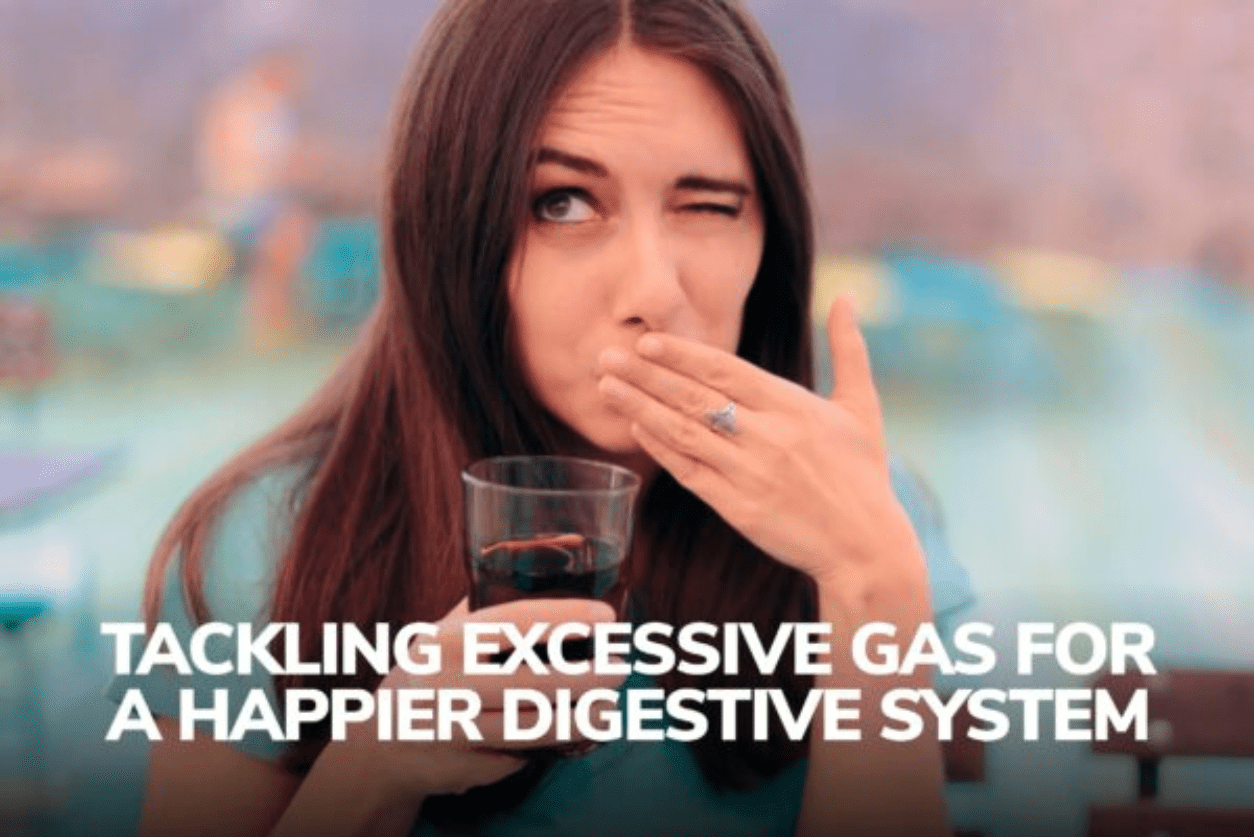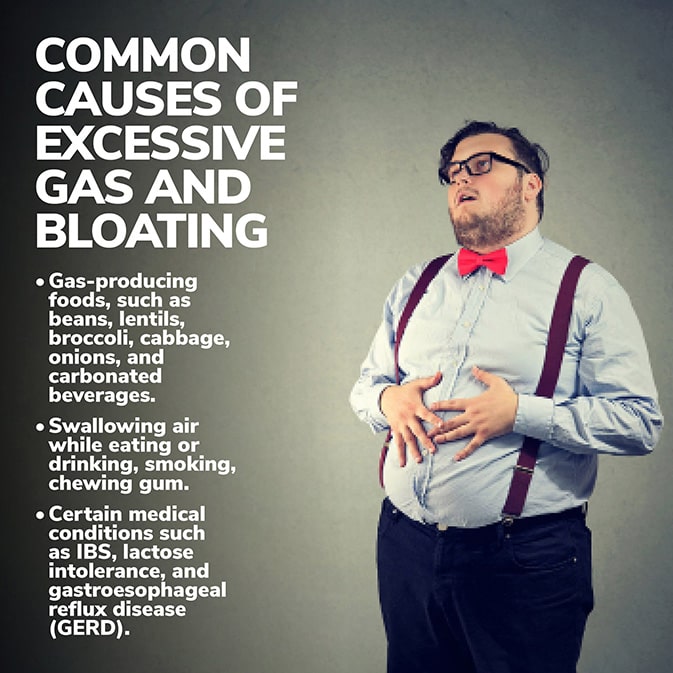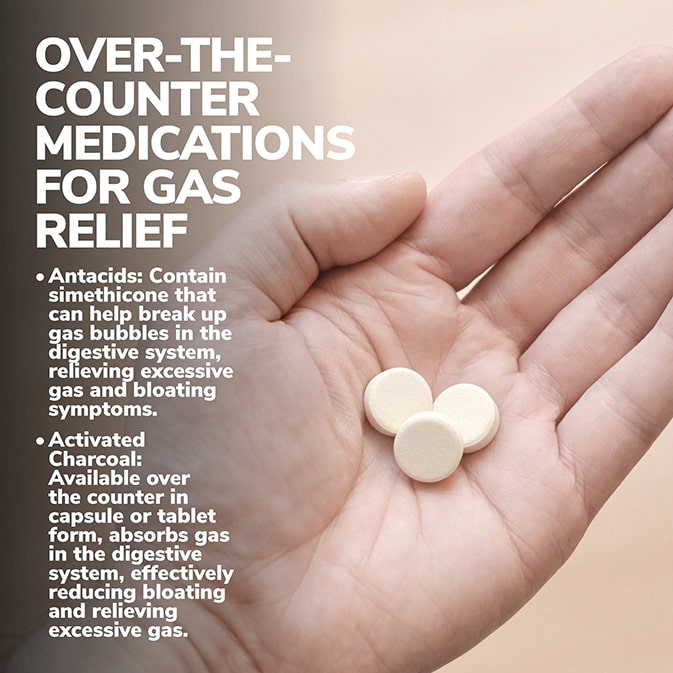
Tackling Excessive Gas for a Happier Digestive System
Understanding Excessive Gas and Its Impact on Digestive Health
Excessive gas, also known as flatulence, results from gas accumulation in the digestive system. This can be caused by various factors, including the breakdown of undigested food by bacteria in the colon, swallowing air while eating or drinking, and certain medical conditions such as irritable bowel syndrome (IBS) or lactose intolerance. Excessive gas in the digestive system can cause bloating, discomfort, and the need to pass gas frequently.
The impact of excessive gas on digestive health can be significant. Not only can it cause physical discomfort, but it can also lead to social and emotional distress. The constant disruption caused by the need to pass gas can disrupt daily activities and interfere with work, social interactions, and relationships. But relief is possible.
Common Causes of Excessive Gas and Bloating
There are several common causes of excessive gas and bloating. One of the most common causes is eating gas-producing foods, such as beans, lentils, broccoli, cabbage, onions, or drinking carbonated beverages. These foods contain complex carbohydrates that are difficult for the body to digest, producing excess gas.
Other causes of excessive gas include swallowing air while eating or drinking, smoking, chewing gum, and certain medical conditions such as IBS, lactose intolerance, and gastroesophageal reflux disease (GERD). By identifying the specific triggers that cause your excessive gas, you can make dietary and lifestyle changes to reduce its occurrence.

The Importance of a Healthy Digestive System
A well-functioning digestive system is vital for your overall health, breaking down food, absorbing nutrients, and eliminating waste. To maintain digestive health, adopt a balanced diet of fiber, fruits, vegetables, and whole grains, promoting regular bowel movements. Proper hydration is also important. Regular exercise not only stimulates digestive muscles but also aids in reducing stress, a factor contributing to concerns such as excessive gas and bloating.
Natural Remedies for Gas Relief
When it comes to finding relief from excessive gas, several natural remedies can provide relief.
Effect natural remedies include:
- Peppermint Oil: Peppermint has been shown to relax the muscles in the gastrointestinal tract, reducing gas and bloating. It can be taken as enteric-coated capsules (to prevent them from dissolving in acid) or consumed as tea.
- Ginger: Ginger has anti-inflammatory properties that can help reduce inflammation in the digestive tract, alleviating symptoms of excessive gas and bloating. It can be consumed as a tea, added to meals, or taken as a supplement.
- Probiotics: Probiotics are beneficial for health primarily due to their positive impact on the balance and diversity of the gut. They can be found in fermented foods such as yogurt, sauerkraut, and kimchi or taken as supplements.
Dietary Changes to Reduce Excessive Gas
Reducing excessive gas involves dietary changes such as avoiding gas-producing foods and opting for easily digestible options like lean proteins, cooked vegetables, and low-sugar fruits. Besides avoiding gas-producing foods, it is important to eat slowly and chew food thoroughly. This can help reduce the amount of air swallowed while eating, which can contribute to excessive gas.
Fiber is an essential component of a healthy diet but can also contribute to excessive gas if consumed in excess. Gradually increasing fiber intake and drinking plenty of water can help prevent constipation and promote regular bowel movements, effectively reducing the risk of excessive gas.
Lifestyle Tips for Managing Digestive Health
In addition to dietary changes, several lifestyle tips can help manage digestive health and reduce excessive gas.
- Stress Management: Managing stress is essential, as it can disrupt digestive function and contribute to gas and bloating. Yoga, meditation, and deep breathing exercises promote a healthy digestive system.
- Regular Exercise: Regular exercise is crucial for a healthy digestive system, promoting regular bowel movements and reducing the risk of constipation. Aim for at least 30 minutes of moderate-intensity exercise most days to support digestive health.
- Avoid Smoking and Limit Alcohol Consumption: Smoking can cause the swallowing of air, leading to gas accumulation. Alcohol can irritate the digestive tract and disrupt its normal functioning.

Over-The-Counter Medications for Gas Relief
If natural remedies and dietary changes are not providing enough relief, over-the-counter medications may be an option for gas relief. Follow the recommended dosage instructions and consult your gastroenterologist for optimal results.
- Antacids: Antacids containing simethicone can help break up gas bubbles in the digestive system, relieving excessive gas and bloating symptoms. They can be taken as chewable tablets or in liquid form.
- Activated Charcoal: Activated charcoal, available over the counter in capsule or tablet form, absorbs gas in the digestive system, effectively reducing bloating and relieving excessive gas.

When to Seek Medical Help for Excessive Gas
While occasional gas and bloating are normal, persistent, or severe symptoms may suggest an underlying medical condition that requires medical attention. If excessive gas is accompanied by other symptoms such as abdominal pain, changes in bowel habits, weight loss, or blood in the stool, contact your GGO gastroenterologist immediately.
They will perform diagnostic tests such as stool analysis, blood tests, or imaging studies to identify the cause of your symptoms. Based on the findings, they will recommend a treatment option to relieve excessive gas and improve your digestive health.
Preventing Excessive Gas Long-Term
Preventing excessive gas long-term requires a comprehensive approach that includes dietary and lifestyle changes. Avoiding or limiting gas-producing foods, eating slowly, chewing food thoroughly, and managing stress are essential strategies for preventing excessive gas. Regular exercise, staying hydrated, and avoiding smoking and excessive alcohol consumption are also crucial for maintaining a healthy digestive system.
Keeping a food diary to track your symptoms and identify any patterns or triggers contributing to excessive gas may be helpful. This will help you make informed decisions about your diet and lifestyle and enable you to make necessary adjustments to prevent excessive gas in the long term.
Contact Us
Excessive gas is a silent battle that affects many people. Understanding the causes of excessive gas and its impact on digestive health is crucial in finding relief. By making dietary and lifestyle changes, incorporating natural remedies, and seeking medical help when necessary, you can take control of your digestive health and find relief from excessive gas. Don’t let gas prevent you from living a happier, more comfortable life. Schedule an appointment with Gastroenterology of Greater Orlando today and start your journey towards a healthier digestive system!